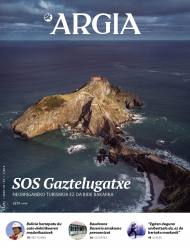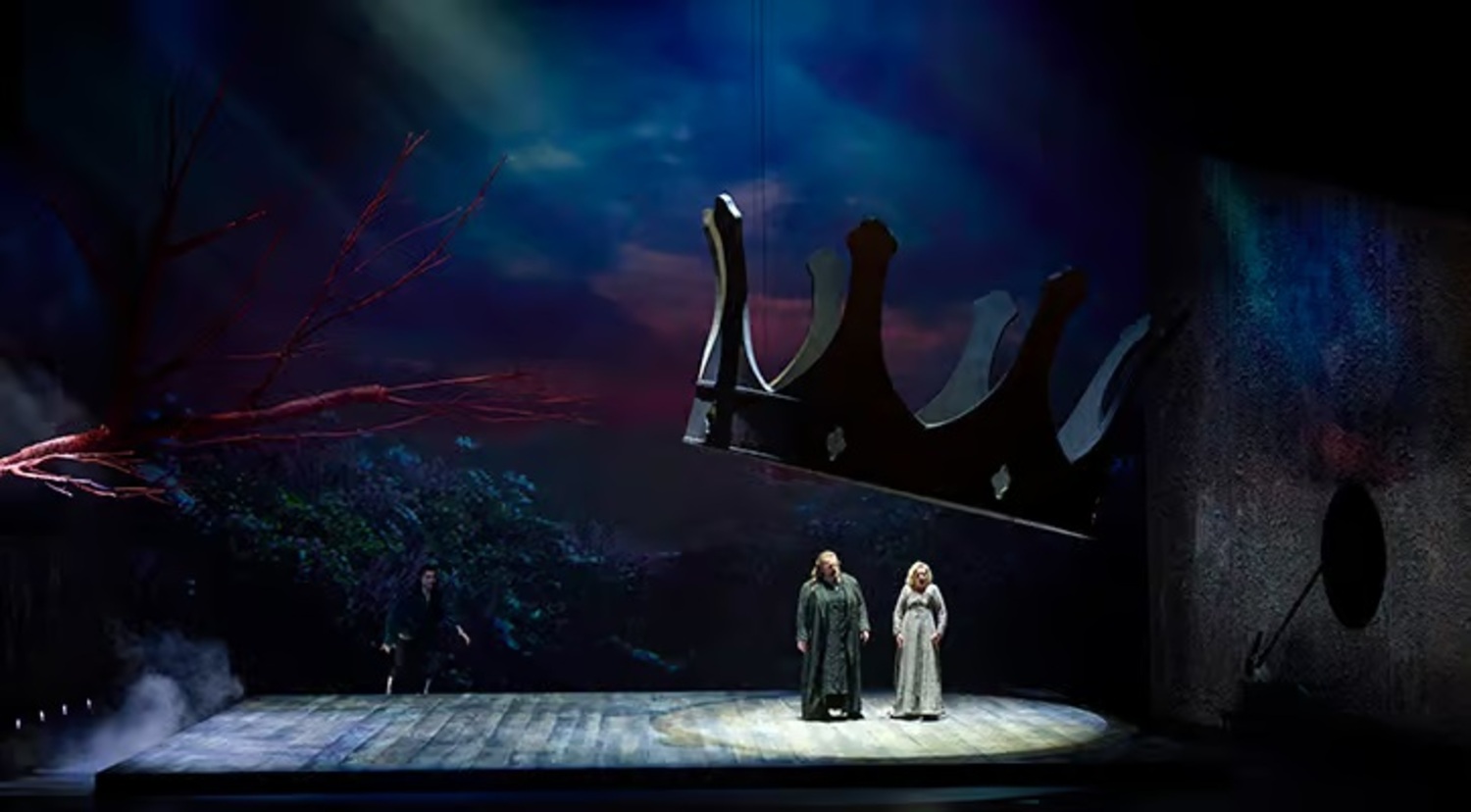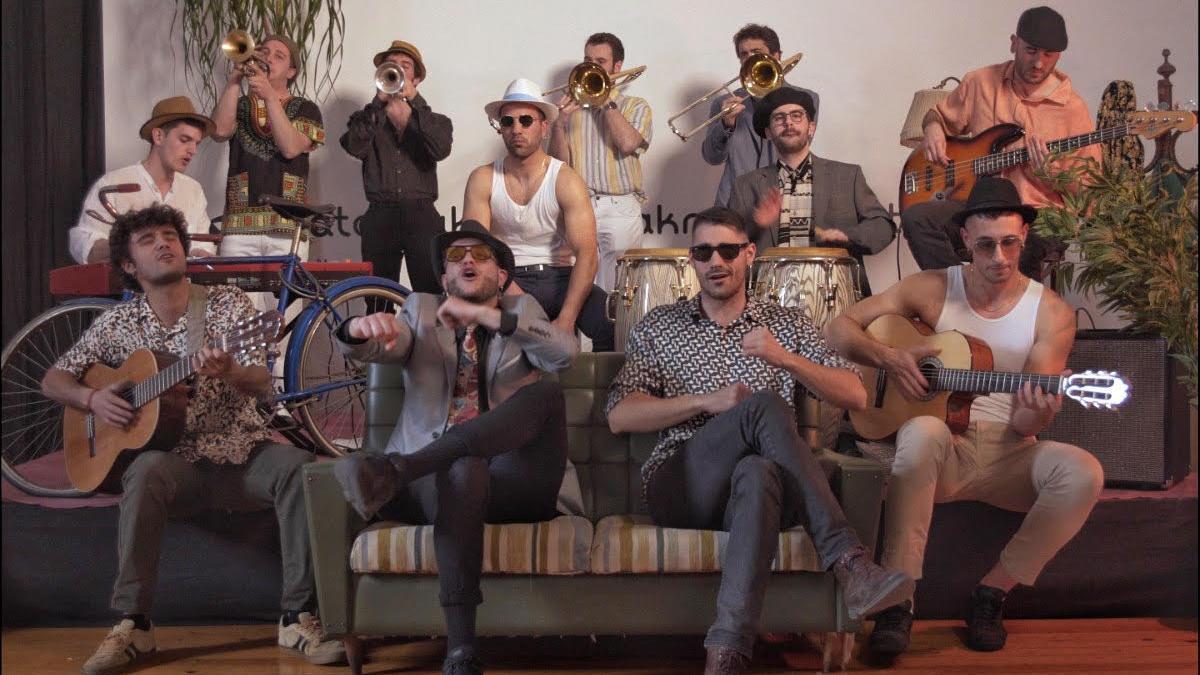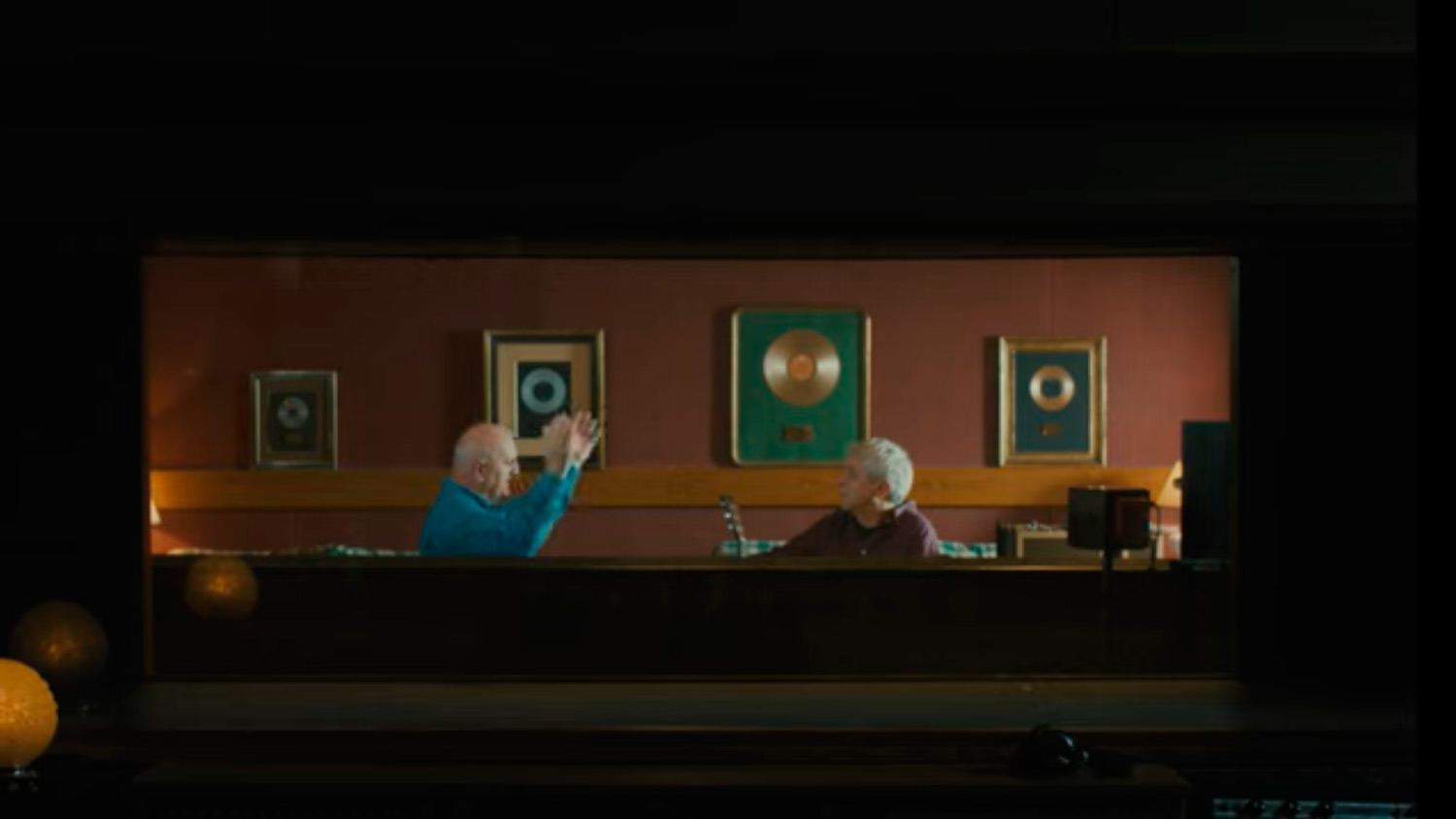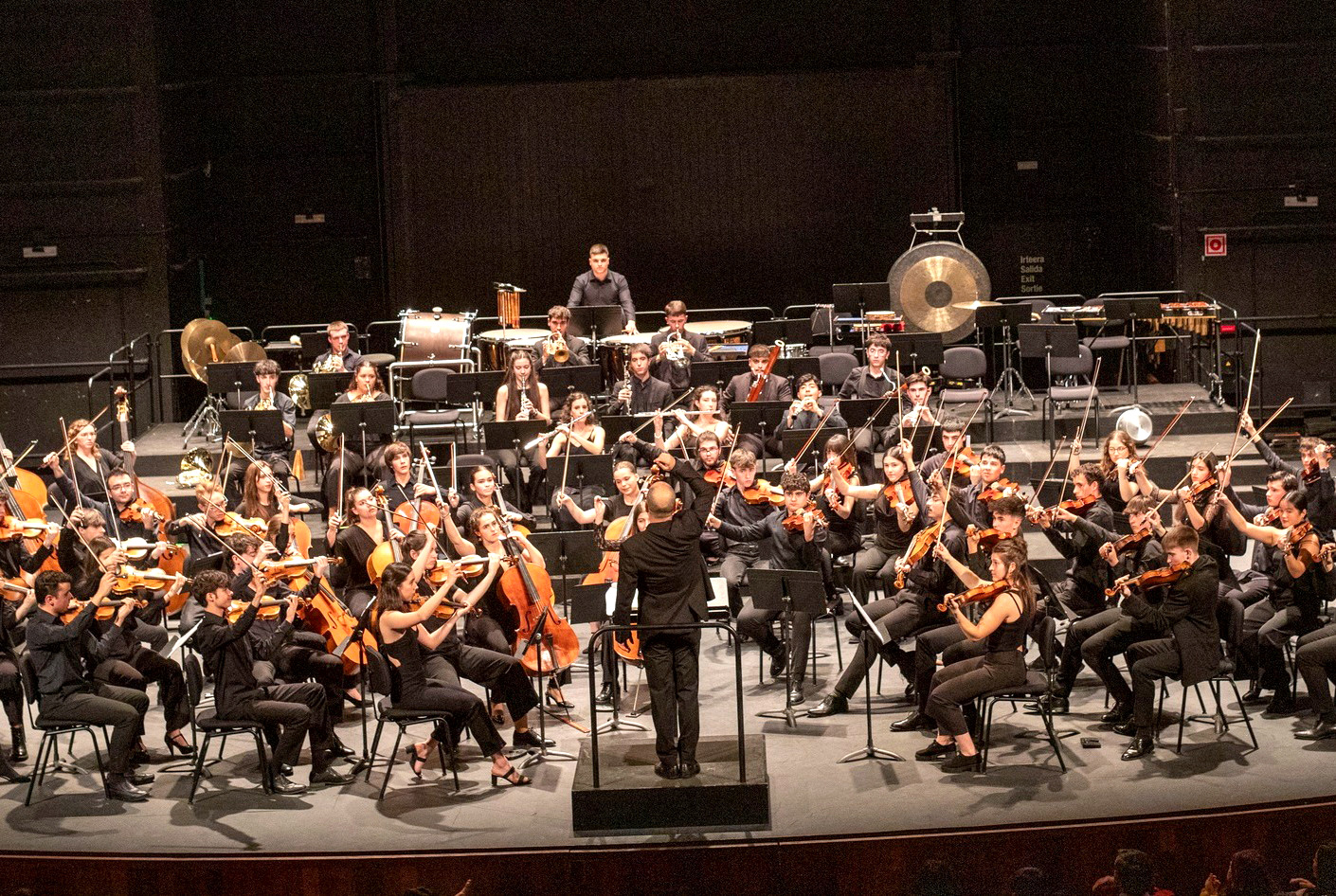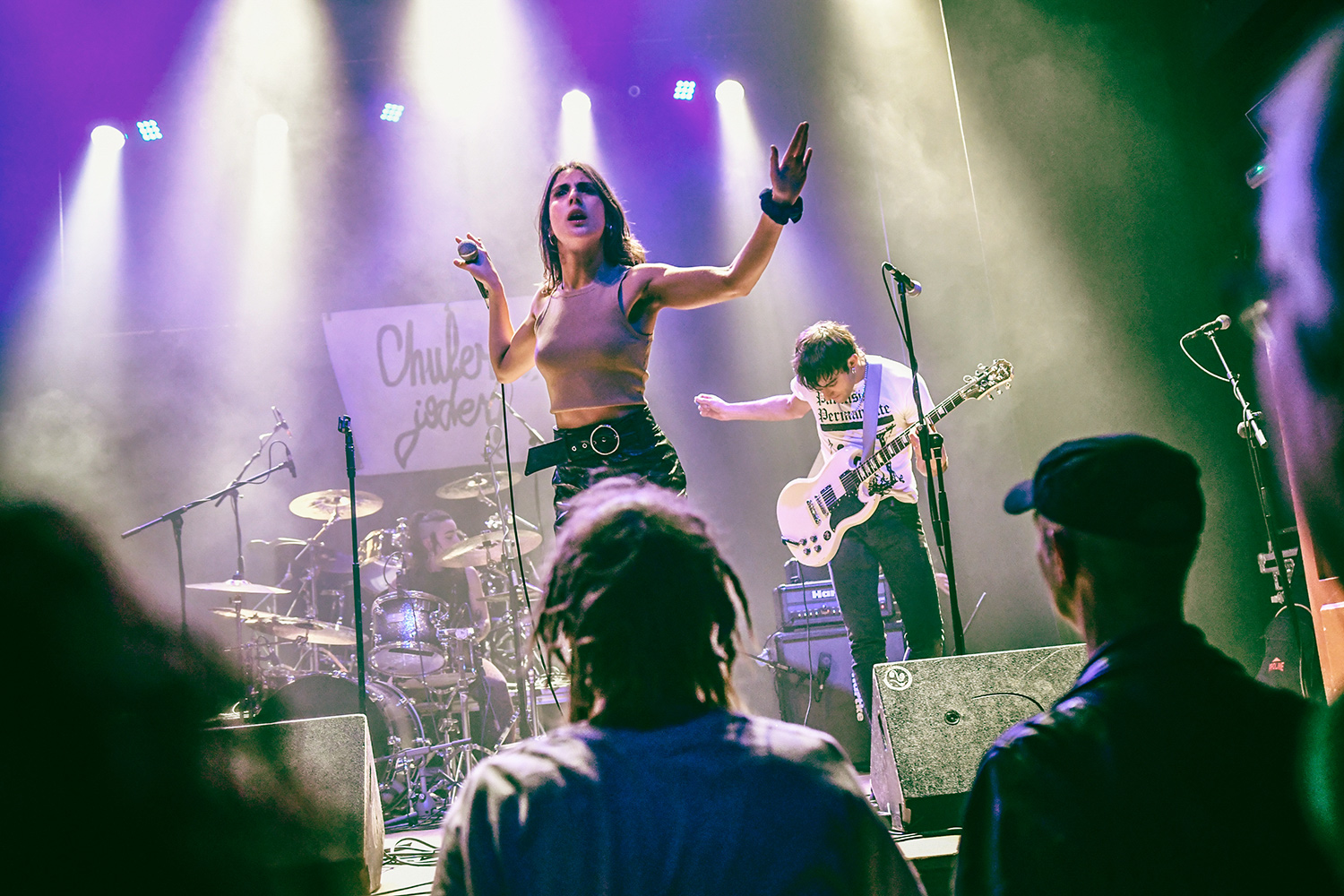"Given how Álava has been and how the Basque has risen, we do not have to be pessimistic"
- Zeanuri, 1956. His home is Bilbao and his hometown. However, we have spoken in Hendaia. On the occasion of the birth in August 2020 of the bard of Urretxu Iparragirre two centuries ago, he is again preparing a musical about him: “Let your songs stay alive means something.” It's been 45 years since he published, along with Xeberri, the memorable album coming out of the Wounds. Bittor and I have met with the Vizcaine singer to talk about the book and the album Biok.
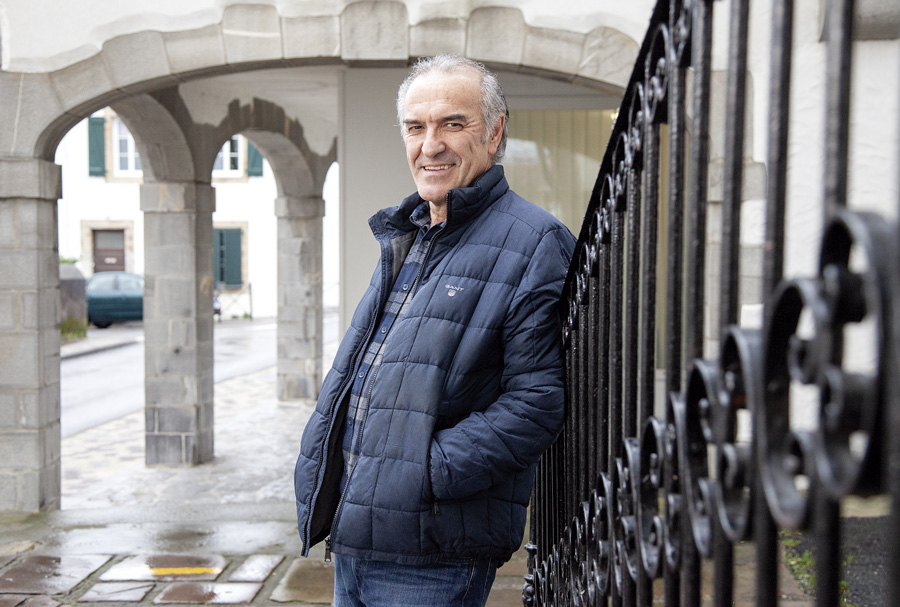
Bittor and Biok (Bittor Kapanaga Reflection Legacy “Euskal Socrates”) is the title of your book. Have you been known Bittor Kapanaga?
No. Like Socrates, Kapanaga barely wrote. He wrote sometimes in the magazines Clear Celestial and Fraternity, and wrote a single book: Roots. He was, above all, a charlatan. Owner of the Basque and nature. I haven't met anyone who knew as much about trees as I knew about plants. However, it is progressive. For example, when I started higher education, he used the word devotion. We used the word development: “They say roots develop. Euskera has a natural sense and for that we have to go to the roots,” he told us with a little despair. He said that this sense provokes a different thought and that that is why it is good to defend the “Father’s House”, but without forgetting that the “Mother’s Fire” is earlier. Some have later used his philosophy, including Jon Sarasua.
It's been your teacher.
Yes. I've known nature because of it. In line with his ideas, I follow the way that the Basques introduce us into the world: “The Basques are not an island. The Basque language is replicated,” he said. In Europe there are hundreds of similar toponyms to Euskera. In Sardinia, for example. Juan Martín Elexpuru has found 500 toponyms inside the cave of Arguiñe. I'm in Georgia from the Neroni Caucasus: I've seen plum toponyms, water, pure, artxanda… Is it chance to be next to each other? It's the cause. I've written about all of this in the book.
Joseba Sarrionandia is the prologue of the book: “Resistance and resilience is what Bittor and Gontzal teach us,” among others.
First two words on Sarrionandia: Despite living in Joseba Havana, knowing our reality so well, the situation of Euskal Herria is a great merit, worthy of removing the txapela. Besides being a great writer, of course.
I relate resistance and resilience to the situation of our people: if a people wants to be, it has to be him. Don't do the same thing as anyone else. They have done so in Catalonia, they have done so in Scotland. OK. In Bai, we have to do our political and cultural. As our culture, we have a lot to learn to look at ourselves about our history. If someone has history, it's our people. Looking back is looking at language. But of course, there are firewalls there as well. The Iruña Veleia case is one of them. If graphites are true? Are they fake? Why don't you want to look? Let them examine them once and for all. Here we live in patriarchalism: in line with the orders of the church, the political institutions and the university. To change that, you have to change the theories, but many prefer to live in dogma. Bittor has been a heterodox in that sense. In Euskal Herria, we should have the ability to look backwards, we have to change our conception of our culture. For example, right here in Urruña, we have the Castle of Urtubi: the writing by Biltzen Berotz Bozt is very significant. Our ancestors were grouped together by the stake. This feature of domestic motherhood is a way of acting in politics. However, in politics we also live the calque of the church: “The top spoke and the bottom listened.”
Have we Basques lived for too long looking outward in recent decades?
Yes and no... It's normal for us to take things from the outside. Or, on the contrary, bring ours out. We have worked on cooperativism and it has been very useful here and abroad. Its features are very interesting. Beyond the factory, we in society have worked to some extent that character. Then, of course, we fall into capitalism, because of its savage character. However, in Euskal Herria during the last decades, different values have been worked on to carry it out around the world. But ...
But ...
Bittor said that only in Euskera could we not go out into the world. And yet, the Basque Country has its own structure, a way of thinking, a philosophy, the same one it had thousands of years ago. A Madrid neurosurgeon based in New York, who is learning Euskera, says that Euskera should not only be learned in the Basque Country, but also in Spanish and European schools. If that is what a Basque says, he is disregarded.
But a foreigner has said ...
Unfortunately, a stranger has to say what our “scream” is. Sarrionandia also says so. In this sense, Sarri is very practical, it is today. Bittor was older, had other historical visions, he was a friend of José Miguel de Barandiaran, who had gone through his stem. In other words, taking into account the past, without disdaining it, we have to go down new paths.
You're a soloist, but you're also the author of musicians like Iparragirre, Arrupe or Olentzaro.
-I have always looked for things from the past and I have come to those from the present. I don't care if there's going to be another world. Even saying ‘I believe’ or ‘I do not believe’ are both dogmas.”
I did sociology -- I also started studying economics, but I didn't go to class -- and I know Basque sociology a lot. I started as a soloist, but I set up a producer, I've done television shows, I've worked on dubbing. But above all, I find myself in musical poetry. I mean, I've had partners in a lot of jobs, and I don't want partners. We are of all kinds, I have known evil beings and many times I have gone wrong. For example, this album [Gau magikoa, Kai, Mai, Koa musikala. The Gontzal Mendibil & Easo Txiki choir is in our hands] came out very well in an artistic way, but we have had tremendous problems. It's hard to make production and sing, but I've also chosen that path. Euskal Herria is small, as soloist there are few options. Creating is OK, but that needs your benefit, we have to put our heads on the ground. Utopia is OK, if we're going to do what you project.
Both coming to the album: The words of Learning to Live are yours – in tribute to Bittor Kapanaga. You're also a poet or a letrist.
I'm not a poet. I liked poetry, and I musicated mostly the words of poets. Learning to live is the result of what Bittor lived with him in the last days, lived in him, inherited from him. "What can I get out of my brain?" I thought. The expression in the song has been learned from it. Bittor was humble.
.jpg)
result of living with Bittor"
What does poetry need to be sung?
Credulity, coming out of the interior. Let me be moving. The one who reads poetry has to feel that something moves inside, and the one who hears the song the same thing. It has to tell you something, and better if it's easy. For example, in Araba bagare [The Song of the Album That Comes Out of the Wounds] is not perhaps my best song, but as it is simple, it has come very easily to people. On the biok album, I musicated the letters of the poets Jose Luis Padrón, Koldo Izagirre, Pako Aristi and Karmele Jaio, in addition to those of Ainara Maia; the new poet for me, a discovery. Hope is an easy song for the heart, but it has some meaning.
What have been your slogans or beginnings in the musical career?
First, I have to believe in what I do. If you believe in your job, you have some choice. I'm not the musician who does what's fashionable. One of my slogans has been “not following fashion.” Everyone has to do their own thing. I think I'm like that, it's me. I had to follow my path. Of course, I've had my ups and downs, sometimes I've been up and other times I've been down.
Incidents?
Around 1983, we made the first AEK trip in Urkiola, I went onstage with a hat, Frank Sinatra for an air, and demons! Despite speaking in Basque, for many people it was a sacrilegium: “So far it has been abertzale and now so ...”. I felt a terrible burn. “I’m going to America for a season,” I thought.
Have we changed the Basques?
Yes. Those times passed. Today we are freer. But being free is not easy anywhere and not here either. “If you’re not from here, you have to be from there.” I don't want to depend on anyone. According to Bittor, natures don't change, you can't deny what you were, of course, gradually maturing, maturing, maturing...
In the book you see a kind of symbiosis between you two.
We've been together for 37 years, we've spent the remains together ... Bittor was very clever, had the Basque and the character of the baserritars. I was also going through the main city. I met Gabriel Aresti through him, when I was 19. Aresti wrote well, but it wasn't the same in Basque. Normal at that time, in Bilbao. He once taught Bittor a poem: “It’s very difficult,” he said. He said: “Hard? Everything good, Bittor is hard.” As for Bittor, “Gabriel, all the eggs are round, but everything that is round is not egg.” He knew the members of the Basque Language Academy, they too. Bittor was heterodox, out of dogmas.
Bittor was very logical, but a believer. Do you also believe in another world?
I have always looked for the things of the past and I have come to those of the present. I don’t care if there will be another mundo.Incluso when it says “I believe” or “I don’t believe”, both are dogmas. It's a mystery. Am I a believer? No! But I want to live with hope.
You've released Bittor Kapanaga. Who is Gontzal Mendibil?
From the inside I'm creative, I like to create, I enjoy creating more than giving. I get to a kind of climax when I'm creating it, rather than when I act in front of people. Giving is all very well, but creating is another thing. Creation makes us freer in some way.
We demand freedom easily, but is it more difficult to live in freedom?
Especially if you go on your own, if you don't want to live in anyone's power. I have often thought that Basques, like cultural creators, should be critical, more critical of the system. Of course, it is not easy, we have to start and live our work, for that we need economic aid and there is often a lack of criticism. Those of us who dedicate ourselves to creation have to be critical and if we have to protest, protest.
Joseba Tapia just said that “there is less and less room for Basque music.”
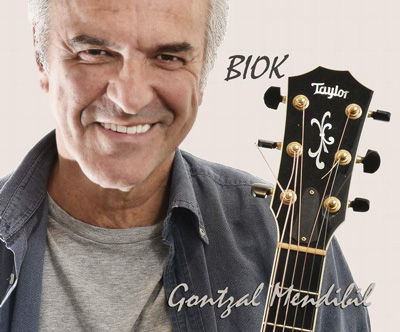
musicated the words of poets."
That is why, when the opportunity arises, we must criticise the serious situation of creators. The creators from outside Euskal Herria seem to me to be more critical than those here. Of course, it's hard to explain the critical. Most body builders, including musicians, are moving on our side, each in turn, there is no agreement and the authorities know it.
Euskal Herria is diverse, in her small there are many Basque Country. I was born in the skirts of the Gorbea, very close to Bilbao. The Basques were in danger of living in the ghetto. Today, fortunately, there are many Euskaldunes in Bilbao, but unfortunately, most people do not live in Euskaldunity. In Bilbao, the Basque is the ghetto.El Cortes Inglés and the Fnac are the major dominators of the classification. Most do not live in the Basque, nor do they want to know Basque music. How do we draw this world into our world? It is our impotence and our need at the same time.
It says: “When Euskaldunicemos Bilbao will be saved the Basque.”
That has already been said by many of the Basque letters. According to Federico Krutwig “When the people of Neguri speak in Basque, the Basque will go ahead. Or if Brigitte Bardot (then famous) fell in love with a Basque and spoke in Basque, the Basque would be saved.” Even today, they send fame and fashion. For young people to speak in Euskera, fortunately or unfortunately, Euskera has to be fashionable. Euskera needs news.
How do you make it fashionable?
“Most body builders, including musicians, are on our side, each in turn, there is no agreement and the authorities know it.”
If I knew. I worked as a professor in the first Euskaltegi in Bilbao, in Uribarri. Today, young people between the ages of 15 and 16 do not know who it is, nor do Ruper, nor Mikel Laboa, nor do José María Iparragirre, of course. Recently, when we were in Berbagune, I asked a young man why not speak in Basque every day: “The Basque is rare, I am weird in Basque.” How do we change this nature? Many young people know this, but they don't use it. That is the question. How do you seduce young people to live in Basque? It's easy to ask and hard to answer.
45 years ago we idealized Euskal Herria, how do you see it today?
I'm optimistic. Although the Basque country has not advanced as far as you want, if you compare that time with today’s, the difference is enormous. If you listened in Bilbao to someone in Euskera, you would turn your head. And in Vitoria? I've been singing in Kanpezu recently. Who spoke there in Euskera 45 years ago?
Being from Zeanuri, what do you think of not having used the Biscayan anymore?
The Biscayan people, in general, have had a kind of complex. Since the batua has developed mainly from the Guipuzkoan, we have internalized that we in Basque were wrong, that we have believed. Television has had a lot of influence on this. It has happened with Batua, for the Biscayan people to think that the others were talking more about Basque. The Lauaxeta practiced Biscayan worship, but after his time the Biscayan fell apart. In Bizkaia I do it in Biscayan and in Zeanuri too. Now the trend has changed a little, the situation in the Biscayan is improving.
Despite being Biscayan, Álava has always been nearby. The song of his last album, Ama Gorbeia, will witness it.
I've always had the Gorbea right in front of me, which is why I say: “Mom, because I was pregnant, I’ve seen you face to face during the Gorbea years, which you never get old.” I see the Gorbea pregnant, always bearing fruit. It's immortal to me.
Gorbeia is located in the five towns of Bizkaia and Álava. I'm Biscayan, but the paternal ancestors were Alaveses. It is also located on the border with Álava the Otxandio [homeland of Kapanaga] and Aramaio. There we created the song Bagare in Álava. If Bittor Kapanaga saw Álava today, he would be very happy. “We are not the seventh daughter, we are the first,” he said. Seeing how Álava has been and how the Basque has risen, we do not have to be pessimistic.
Opera 'Tristan und Isolde'
Bilbao Symphony Orchestra. Directed by: Assisted by Erik Nielsen.
The Bilbao Opera Choir. Directed by: Assisted by Boris Dujin.
The stage director: To the Allex Eagle.
The soloists: I'm talking about R. Assisted by Nicholls, G. By Hughes Jones, M. The... [+]
Party and recreation. Oral History of Rock Radical Vasco
Javier 'Jerry' Corral
Books, 2025
------------------------------------------------
Javier Corral ‘Jerry’ was a student of the first Journalism Promotion of the UPV, along with many other well-known names who have... [+]
All
WHEN: January 18th.
IN WHICH: Jimmy Jazz of Vitoria-Gasteiz.
----------------------------------------------
I have a question in my mind lately: how much do things change in 30 years? Yes, reader, you guessed it: I’ve just turned three decades old. It will be a... [+]
Itoiz, udako sesioak filma estreinatu dute zinema aretoetan. Juan Carlos Perez taldekidearen hitz eta doinuak biltzen ditu Larraitz Zuazo, Zuri Goikoetxea eta Ainhoa Andrakaren filmak. Haiekin mintzatu gara Metropoli Foralean.
Sawdust
Olaia Inziarte
Panda, 2024
-------------------------------------------
Fourteen songs written during the Depression. Olaia Inziarte presented it in the first late night in Basque that can’t be mentioned now. The bru-ta-la piece Sawdust opens the disc. A jazz... [+]
Since Benito Lertxundi, who told us that he will leave the scenes for ever, we have been there for several weeks, and since then many of us have felt orphans in one way or another, with a sense of loss or abandonment, sad. To Iruindarro, at least, we will remain forever honored... [+]
Nafarroa Arenan Mitoaroa ikusten izandako lagun batek “telurikotzat” jo zuen entzun-ikusi-sentitutakoa. Niri ere hala iruditu zitzaidan telebista medio etxetik hauteman nuena.
Pentsa daiteke Mitoaroak piztutako grinak eta atxikimenduak proiektuaren ikusgarritasuna... [+]
Basque Country Herriko Gazte Orkestra. Winter Meeting
Director: Iker Sánchez.
Narrator: Kepa Errasti.
Programme: Works by Britt and Beethoven.
Place: Victoria Eugenia Theatre, Donostia.
Day: 2 January.
-----------------------------------------------
After 27 years, we... [+]
Chulería, fuck!
WHEN: 5 January.
WHERE: At the Kafe Antzokia in Bilbao.
----------------------------------------------------
As I filled the room, looking down behind the railing above the theater, I've been playing to see if I find someone younger than me before the... [+]
Beyoncé at the break of an American football game in Houston, Texas. The American singer has come to the center of the stadium in a cowboy suit that she's had access to. The hat covers the nice, the legs the boots long to the knees. The scarce white suit shows her thighs and... [+]
The New Year’s Morning is the title of a roundness created by Joxe Ansorena, brother of our grandfather Isidro, for the Txistularis to hit the streets during the New Year’s Morning. In the air of that melody, we were picking up the wrecks of the night, like the garbage... [+]









